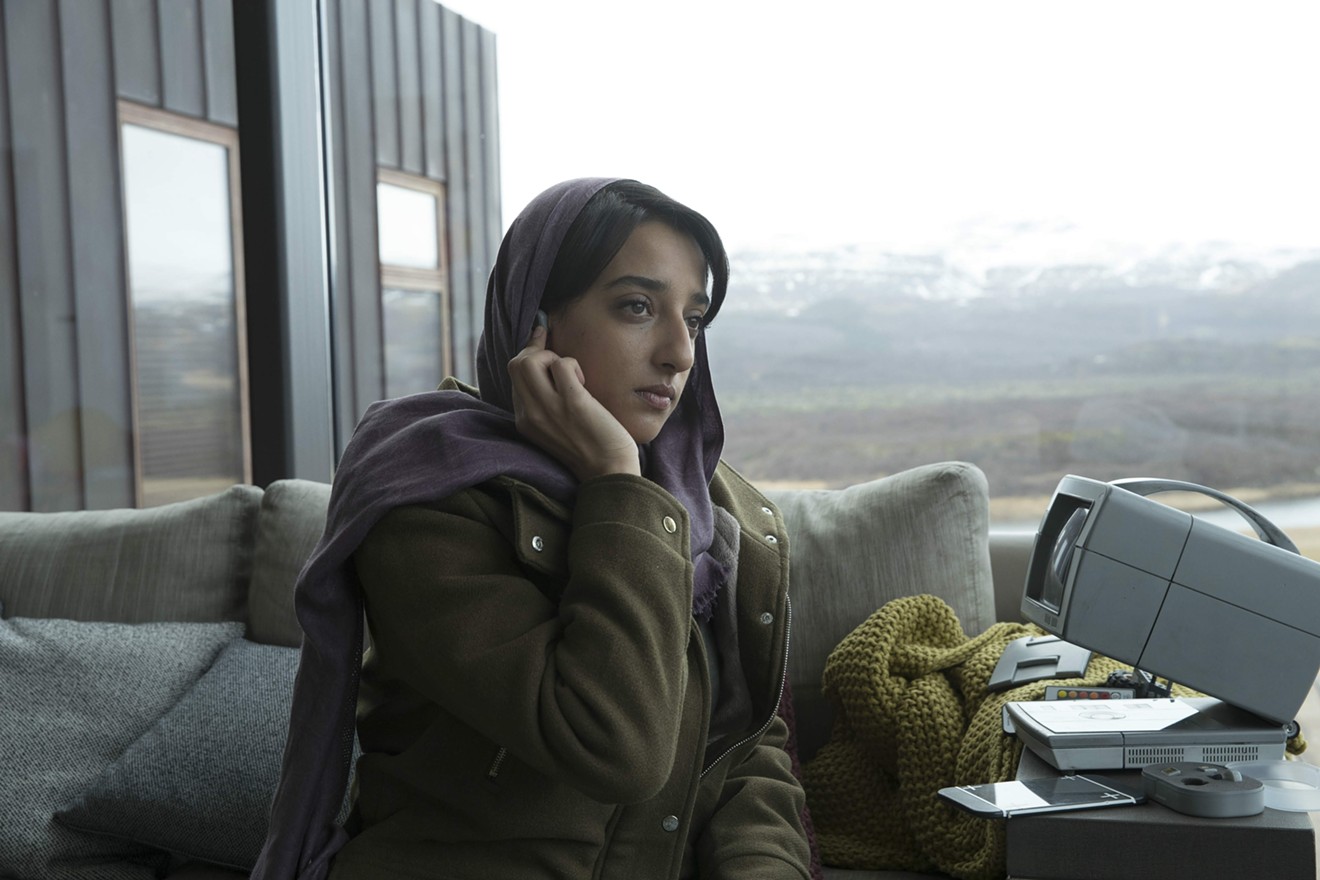There’s nothing on TV that makes me feel quite as ill as Black Mirror. No other series manages the kind of stomach-dropping, throat-lumping, head-pounding dread of this dystopian nightmare-scape, which dumps six new, brilliantly nauseating episodes on Netflix this Friday. What better way to cap off a sickening year?
Created by Charlie Brooker, who writes most episodes, Black Mirror premiered on the U.K.’s Channel 4 in 2011 before Netflix swooped in and picked it up in 2015, commissioning 12 new episodes over two seasons. The new season, Black Mirror’s fourth in total (and an overall improvement on the first batch of Netflix episodes), continues the show’s anthology-style interrogation of the way we live now — and the way we might in the not-so-distant future.
As always, the new episodes are connected only thematically and, with a different director behind each, they vary widely in tone and aesthetic. This helps lessen the potential monotony of the fact that they all have at heart the same basic message: Technology will ruin our lives faster than it can enrich them. This season’s emphasis is on products purportedly meant to keep us safe and secure but actually compromise our freedoms.
In “Crocodile,” directed by John Hillcoat, an architect (Andrea Riseborough) struggles to come to terms with an ugly incident from her early 20s thanks to the legally mandated use of “corroborators” — retrieving devices that allow investigators to comb through witnesses’ memories to get a “crowdsourced picture of reality.” As often happens on Black Mirror, “Crocodile” interrogates the notion that our field of vision is just one big screen we can manipulate with the swipe of a finger. “Arkangel,” directed by Jodie Foster, stars Rosemarie DeWitt as a single mother who, shaken after briefly losing her daughter at a park, buys into a new parental security system that is the logical extension of today: one that allows her to see everything her daughter sees. She can even apply parental controls to “paint out” distressing images in her daughter’s “optic feed,” so a viciously barking dog becomes a fuzzy, garbling blob.
As in previous episodes, like last season’s “Playtest,” the devices embedded in the minds of Black Mirror’s early adopters are deceptively small, and look as if they were modeled on Apple products — seamless and smooth, like newborn babies. They’re often little white buttons implanted in the user’s head, in the temple, above the ear or in the back of the neck — tiny, but still undeniably, and even a bit violently, invasive. The process never appears to be painful or to leave a mark, but when the devices are inserted, the show’s sound designers make sure we hear the skin break — an aural point of no return.
Black Mirror is certainly a sci-fi series, but that’s a slightly misleading label. The show exists in a vaguely defined future time and place — its world’s particulars seem to vary from episode to episode, although fan theories suggest they do all take place in the same universe. But the production design always looks just similar enough to our real world today that, watching, we feel an undeniable twinge of recognition. Things look less familiar as each episode goes on, and relatable, human feelings — the guilty panic of a hit and run; the anxiety of new motherhood — give way to a far more alien reality in which there is, inevitably, a shiny new product to assuage those feelings. Cue the sense of impending doom.
There’s usually a twist in which we find out that the new tech is more coercive than it first appears; a common theme is that our devices can’t be escaped. Black Mirror is most effective when it exaggerates something that people already feel or have the capacity for — like our growing desire to abandon the complications of the real world for the simple pleasures of an imaginary universe — augmenting the possibilities with technology that anticipates our worst impulses, then nudges them forward. The episode that’s stuck with me the most this season is “USS Callister,” directed by Toby Haynes. Jesse Plemons plays a nerdy, put-upon CTO, a brilliant coder and designer of an immersive video game who’s obsessed with a “visionary” old TV show, a Star Trek analogue called Space Fleet (“Netflix has it these days”).
I don’t want to give too much away; the impact of these stories relies on the gradual release of information, a narrative striptease in which we and the characters often together discover how these futuristic doohickeys work. (I also don’t want to upset the very passionate Charlie Brooker, who once slid into my DMs to humbly request that I remove a spoiler from a Toronto Film Fest review of a new Black Mirror episode, which had just made its world premiere. That’s enough to make a girl feel human.) Sometimes it’s hard to understand why the characters would submit themselves to all this invasive tech; in some scenarios, they have no choice, but often — particularly in the current season, which seems to focus more on consumer products rather than state-sponsored schemes or punishments — it’s unclear why these people don’t just say no.
The problem is, we often don’t know the characters well enough to answer that question. The episodes are powerful fables, but they usually don’t give us a chance to get to know the characters very well or to understand what drives these people specifically, rather than a more general, collective “us.” Sometimes it feels like the show cares more about the digital copies of humans than actual humans.
Season 4 includes a few episodes in which things don’t turn to shit — a wise calculation based on the popularity of last season’s standout “San Junipero,” an uplifting story in which two elderly women find love in the afterlife. Apparently, there is such a thing as too much existential dread; occasionally, Black Mirror suggests, technological advances can have a positive impact.
Brooker would know. The development of his show has dovetailed nicely with Netflix’s growing dominance in original programming; Black Mirror became an international hit once it landed on Netflix in 2014, and it’s since attracted big-name performers, writers and directors, including Foster, Joe Wright, Bryce Dallas Howard, Cherry Jones, and Rashida Jones and Mike Schur. Isn’t the ever-expanding streaming service, which swallows up more and more of our screen time every year, just the kind of technological invasion Black Mirror might take aim at?
In part because of Black Mirror’s deep reservoir of imaginative speculation, it’s not hard to picture a truly terrifying season finale: Some power-mad Peter Thiel iteration hires Charlie Brooker as a consultant and pumps vast resources into making his hideous scenarios a reality. Then again, maybe we don’t need a TV show to witness a nightmare come to life. Have a safe and happy new year, folks.
Black Mirror’s new episodes hit Netflix on December 29.
[
{
"name": "Air - MediumRectangle - Inline Content - Mobile Display Size",
"component": "19274298",
"insertPoint": "2",
"requiredCountToDisplay": "2"
},{
"name": "Editor Picks",
"component": "17482312",
"insertPoint": "4",
"requiredCountToDisplay": "1"
},{
"name": "Inline Links",
"component": "18711090",
"insertPoint": "8th",
"startingPoint": 8,
"requiredCountToDisplay": "7",
"maxInsertions": 25
},{
"name": "Air - MediumRectangle - Combo - Inline Content",
"component": "17482310",
"insertPoint": "8th",
"startingPoint": 8,
"requiredCountToDisplay": "7",
"maxInsertions": 25
},{
"name": "Inline Links",
"component": "18711090",
"insertPoint": "8th",
"startingPoint": 12,
"requiredCountToDisplay": "11",
"maxInsertions": 25
},{
"name": "Air - Leaderboard Tower - Combo - Inline Content",
"component": "17482313",
"insertPoint": "8th",
"startingPoint": 12,
"requiredCountToDisplay": "11",
"maxInsertions": 25
}
]











